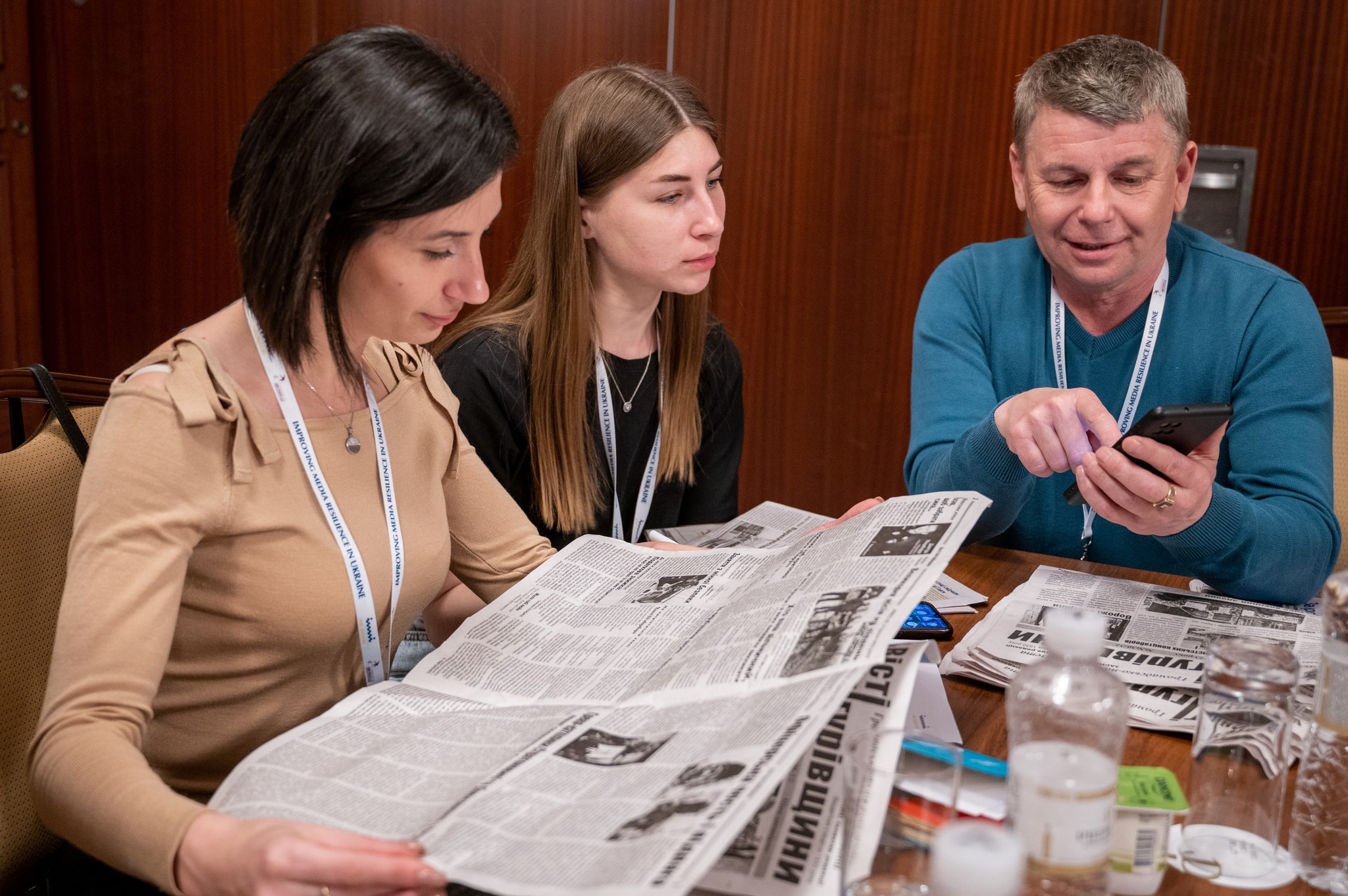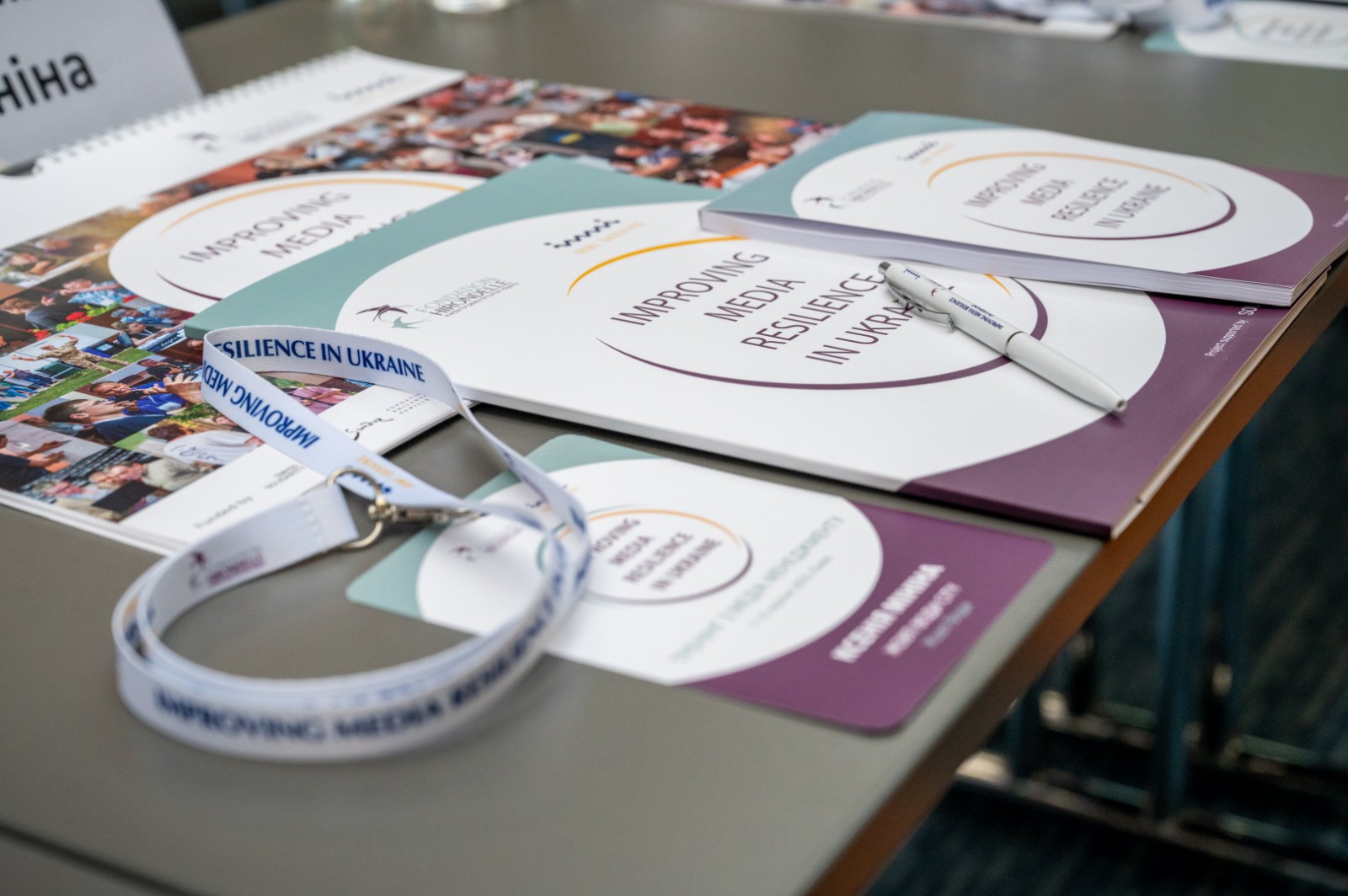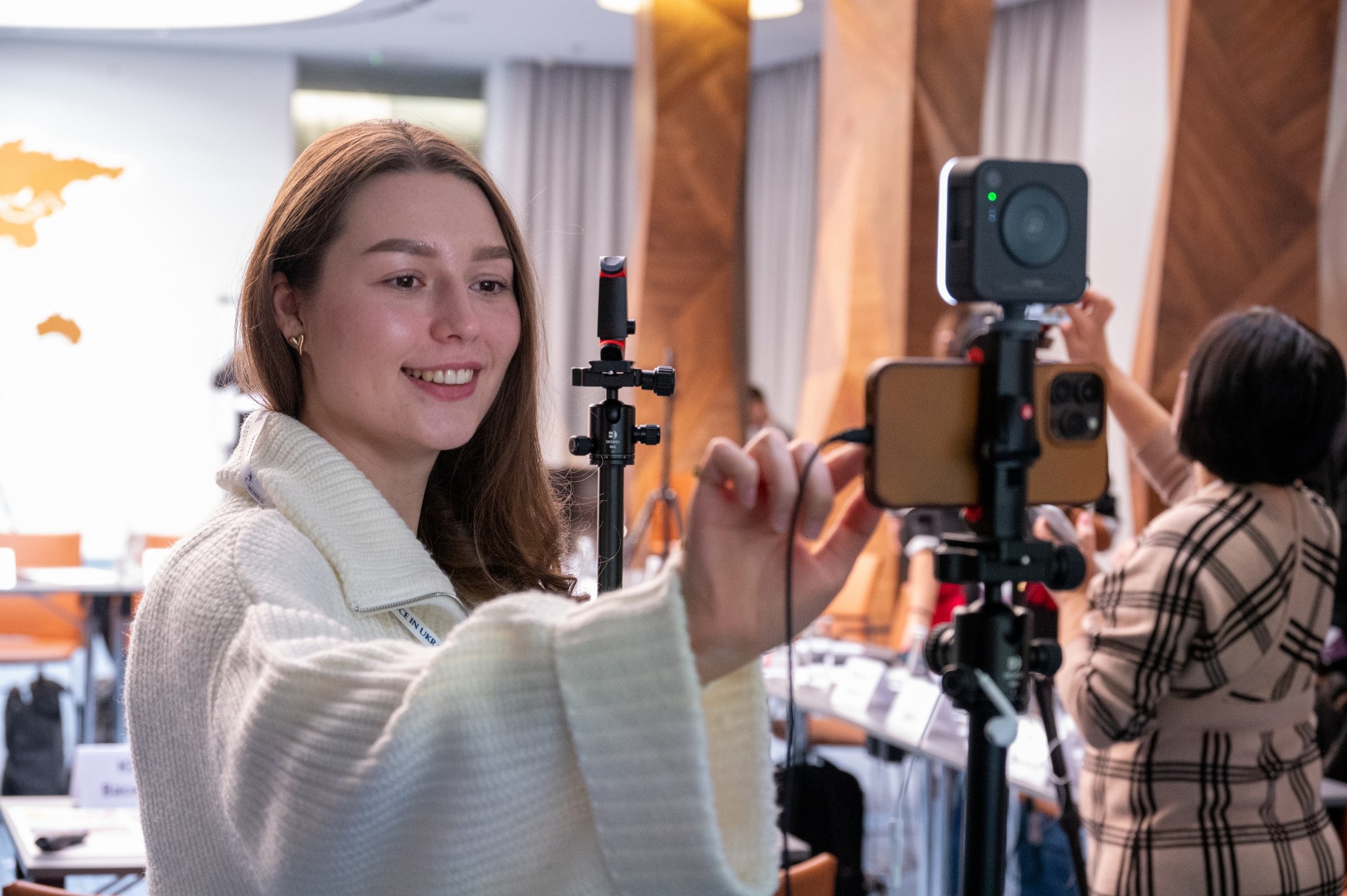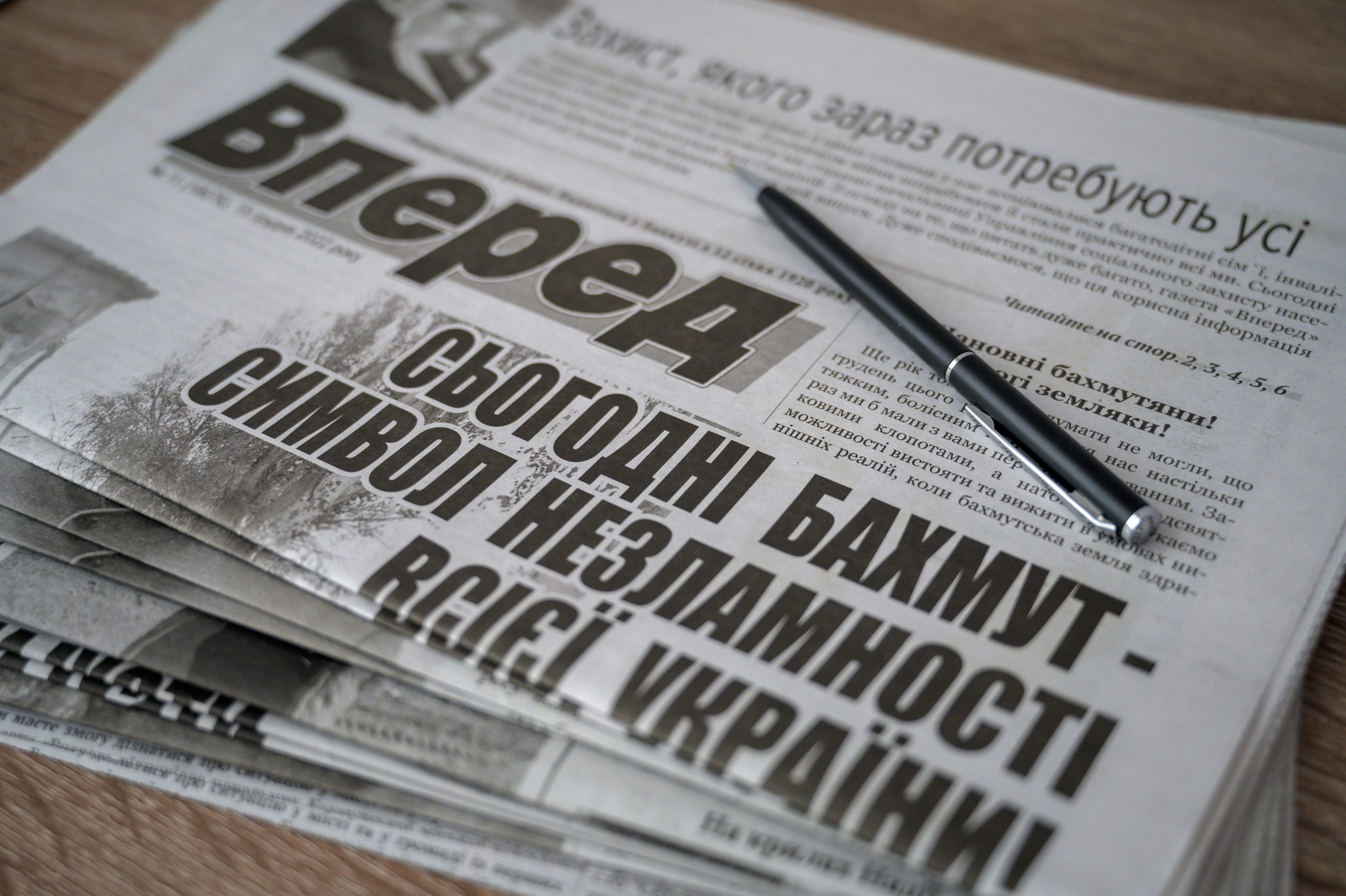

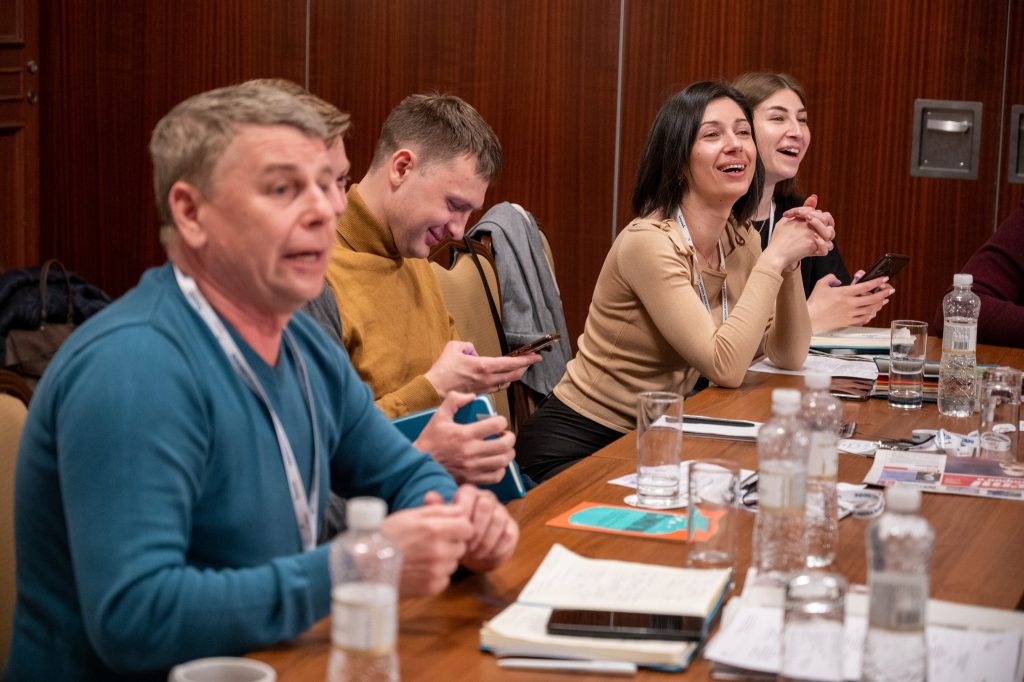
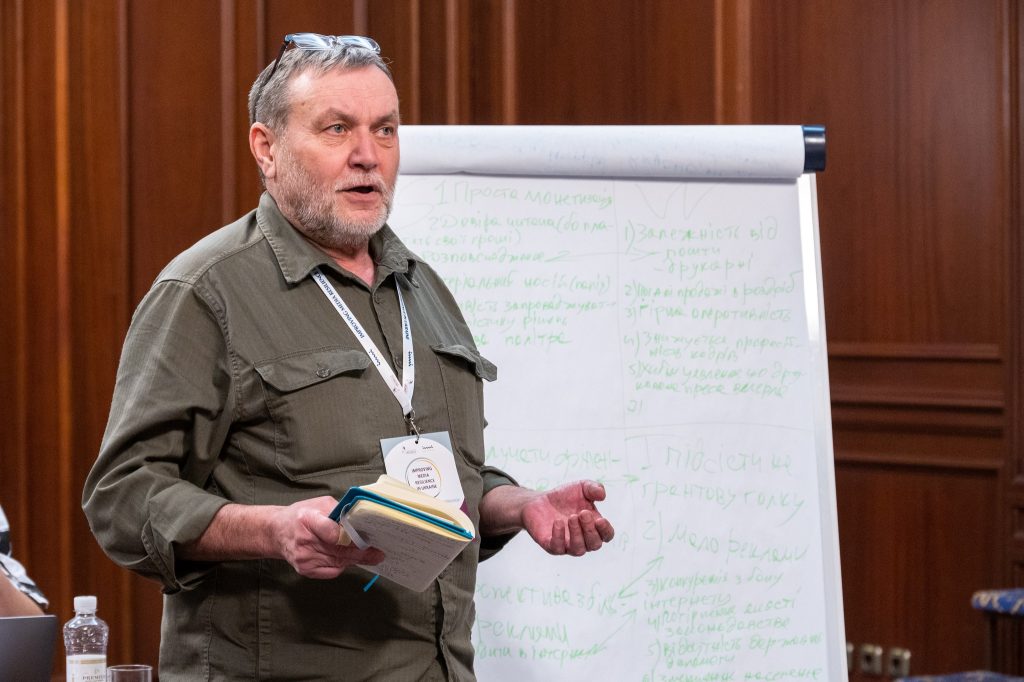

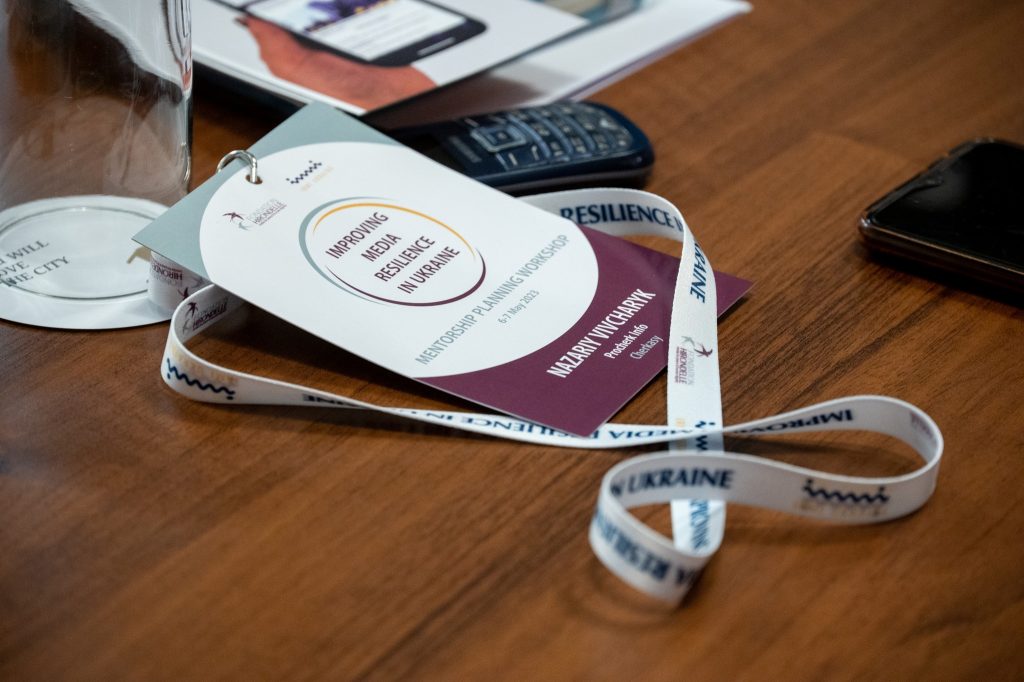
Improving content, enhancing trust, implementing modern media management. What kind of mentoring support do regional media editors expect as part of “Improving Media Resilience in Ukraine”, we are discussing during a two-day working meeting in Kyiv.
Today was the first time the representatives of all local media involved in the IRMI and Fondation Hirondelle project got together. Mentoring, along with financial support, is an integral part of the project, but what are the priority needs? What do media workers expect from mentors – improvement of editorial work and/or management? Support with the development of online resources?
In the first place the discussion was around the key and most painful challenges of editorial offices, which, despite everything, provide their audiences with high-quality, tailored content in extremely difficult conditions. They got to know each other. They shared problems; they discussed how each of them trots their path to the reader these days. How they survive, sustain their editorial offices, and adhere to professional ethical standards. They discussed the best ways to their audiences, who, according to the editors, had changed a lot since the beginning of the invasion. How to create Internet resources so that the content is spread to the best capacity. They gave unique examples of seeking new resources for development (“NikVesti”) – although they are used to their readers being their main funders. It was said that media credibility helps to grow the audience even during the war (RIA Melitopol). Iryna Saliy, editor of “Court Reporter”, shared how to join the project component related to the coverage of court proceedings.
The discussion also focused on tools for measuring audiences, studying their urgent needs and changes that are taking place – how to measure under the conditions of limited editorial budgets. Other constants should be factored in to remain in demand – awareness of the importance of editorial policy, compliance with ethical norms, also during the hostilities. Guests Brendan Hoffman and Oksana Parafenyuk, independent photojournalists who work with foreign media, joined the discussion: they told how foreign newsrooms work, what ethical standards they follow, how they satisfy the needs of their audiences. They compared, analyzed, were interested in the attitude of editorial offices to information about the situation in Ukraine.
So, what trainings and consultations as part of mentoring support do our participants need? Working with databases, SMM and SEO, content for social media, seeking advertisers, editorial work under de-occupation, social cohesion and dialogue building, mobile journalism – these and many other topics were chosen by journalists for a training, online or offline, in groups and individually. The task of the mentors is to analyze what the media representatives discussed and proposed during the two days, to factor in the media needs assessment findings. The prepared mentoring plan will be implemented during the last months of the project.
Olena Astrakhovich, TV journalist GRAD Broadcasting Station:
– Many thanks to Fondation Hirondelle and IRMI for the opportunity to interact and share experiences with colleagues from the regions. It is very important during the war. The mentors’ advice and the support of donors make it possible for the local media to not only survive, but also keep up the freedom of expression in the country.
The working meeting was part of ‘Improving Media Resilience in Ukraine’ project implemented by IRMI together with Fondation Hirondelle and financed by Swiss Solidarity.


